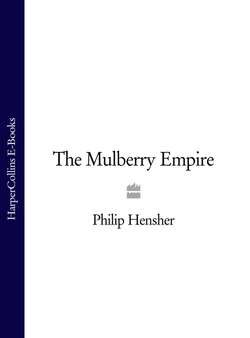Читать книгу The Mulberry Empire - Philip Hensher - Страница 11
4.
ОглавлениеOut on the street, debate about the Europeans who rode so badly was furious and incessant, like the noise of a cloud of swallows.
‘The Amir will not see them.’
‘The Amir will see them tomorrow, fool. He has seen them yesterday, and knows everything about them.’
‘How can the Amir have seen them when they have not seen the Amir?’
At the edges of the market, the old men jogged up and down on their heels, agitated by debate, and punched at the air, quick as clockwork. They bothered no one.
‘The Amir sent Akbar the son of the Amir, and the Amir saw them with the eyes of Akbar.’
‘Did they not know the son of the Amir when Akbar was announced?’
‘Many are the ways of the Amir Dost Mohammed Khan, and wise they are.’
Futteh the singer, plump and pale as a dove, his saucy eyes wandering to make sure of his audience, finished sucking on his plum, pondered, spat. He began a story.
‘You recall the tale of the Vizier’s daughter and the son of the King,’ he started. ‘And the King did not know how he should know if the daughter of the Vizier was true and good as she was thought to be. Now, this was many, many years ago, in China. And the Vizier had the most marvellous garden of roses in all of China, and he was in the habit of taking a walk in the garden, each morning. And one morning, he was accompanied in his walk by his daughter, who was as beautiful as the first light of the dawn over the mountains. He was glad to walk in the rose garden with his daughter, and, after they had walked together for an hour, the Vizier said to his daughter: My daughter, is it true that …’
The story unravelled. Futteh was a good storyteller, and, even in the cold of the early evening, he could hold half a dozen old men with his seamless voice. Their eyes fixed on his, six pairs of eyes, whether crafty, knowing, cynical, for the moment subdued into the quiet trust of the audience. Their knees hunched, their backs against the wall, they listened to the comforting tale they had heard hundreds of times before. Occasionally they interrupted with marginal, concerned comments – ‘He does not know that the ring has been swallowed by the fish on the King’s table,’ or, ‘The girl, does she not understand that the man she is marrying is her own brother?’ or, as narrative catastrophe threatened, ‘Allah is great and merciful.’ But for the most part, they let Futteh tell the story in his own leisurely manner.
When it was over, an hour or two had passed, and the audience sighed, as if wanting more of their own satisfaction.
‘The son of the King in the story disguised himself, and went into the marketplace to hear what the common people were saying,’ one of the audience said.
‘Yes, and that is what Akbar, son of the Amir Dost Mohammed Khan, that is what he has done, with the Russians.’
‘They are not Russians,’ another man said, passing. ‘Engelstan.’
‘Akbar put on a tribesman’s clothes, and took a jezail,’ Futteh said, waving his hand in the air impatiently, dismissing either the objection or the flies. ‘And he went to the house where the English are, and sat with them for two hours, and talked with them. But all the time, they did not know who they were speaking with.’
‘Great is the mind of the Amir Dost Mohammed Khan, and wise is he in the ways of the world,’ someone murmured.
‘And they ride so badly,’ Futteh added, with great finality.
‘Like the sack of rice on the back of an old donkey,’ his listeners chorused sagely.
